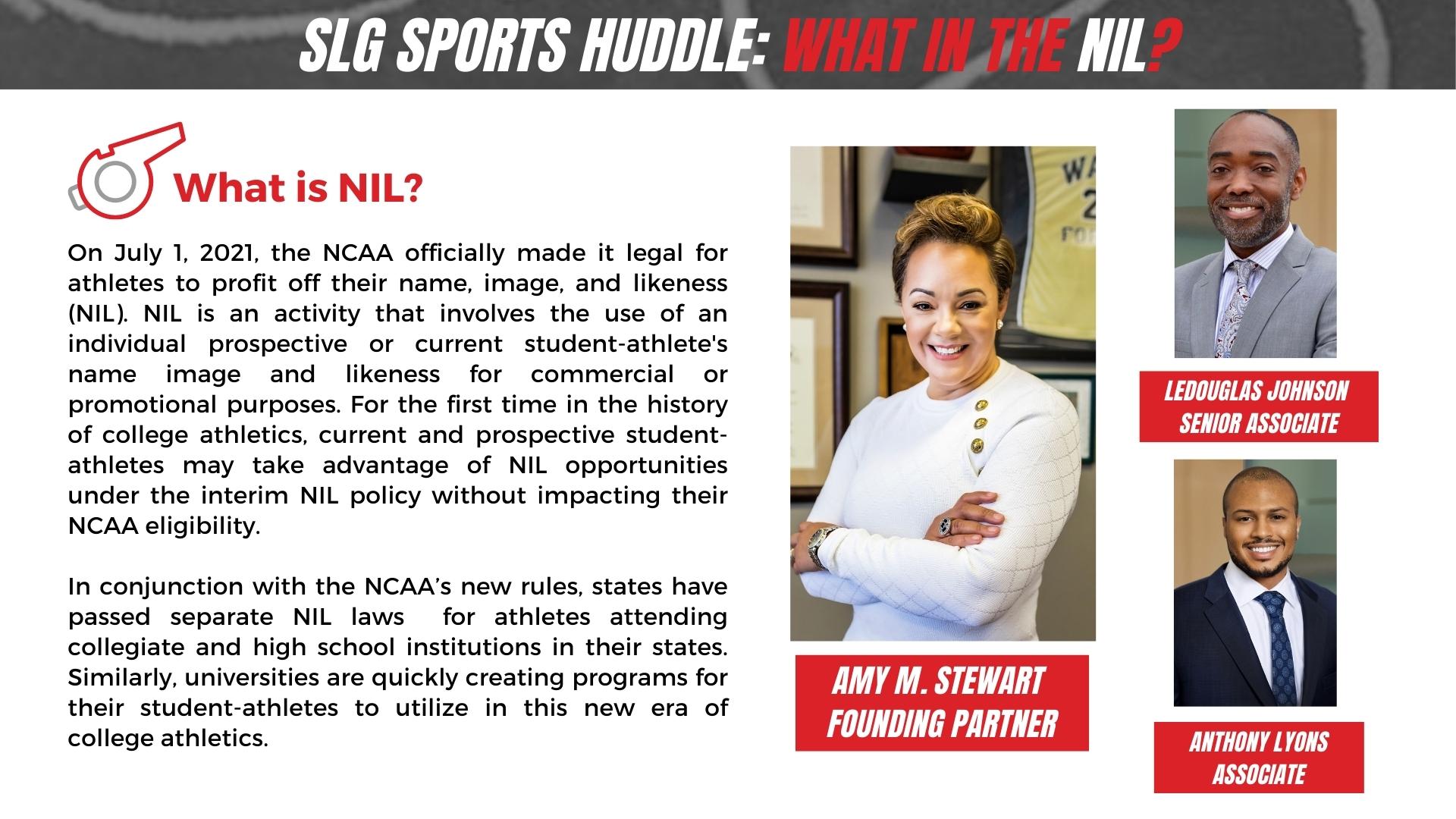
What is NIL?
On July 1, 2021, the NCAA officially made it legal for athletes to profit off their name, image, and likeness (NIL). NIL is an activity that involves the use of an individual prospective or current student-athletes name image and likeness for commercial or promotional purposes. For the first time in the history of college athletics, current and prospective student-athletes may take advantage of NIL opportunities under the interim NIL policy without impacting their NCAA eligibility.
In conjunction with the NCAA’s new rules, states have passed separate NIL laws for athletes attending collegiate and high school institutions in their states. Similarly, universities are quickly creating programs for their student-athletes to utilize in this new era of college athletics.
Why Does NIL Matter?
Before the NCAA passed the current interim NIL policy, student-athletes were subject to amateurism. Amateurism is someone who does not have a written or verbal agreement with an agent, has not profited above their actual and necessary expenses or gained a competitive advantage in their sport. In the past, violating amateurism rules resulted in severe penalties through fines or outright denial of NCAA eligibility. Examples of violations were:
- receiving payment from a sports team to participate
- receiving funds or money to offset training expenses
- accepting prize money based on performance at a competition
- being represented or marketed by a professional sports agent or organization
Both student-athletes and institutions feared the severe repercussion of violating the NCAA amateurism rules, many still remember the “death penalty” Southern Methodist University received the death penalty for violating the NCAA’s amateurism rules relating to recruiting and benefits provided to certain student-athletes.
With athletics being at the forefront of global entertainment and a key for many individuals to establish their livelihood or wealth, athletes viewed the NCAA’s stance on amateurism as a crutch to success. At the same time, institutions received compensation and popularity for their success in athletics created by student-athletes. Student-athletes received no additional support outside the institution’s resources provided during their four-year tenure at their respective institution, subject to injury and other career-altering events.
Now, NIL rules allow student-athletes to receive some form of compensation for their commitment to their school’s athletic department and their personal brand. Compensation may arise from sponsorships, endorsements, camps, and many other opportunities. Student-athletes have the power to build their personal brand and profit from the things they do best like any other skilled individual.
How Does SLG Help?
“SLG assists businesses, consultants, and student-athletes to understand how to capitalize on the NIL rules and state laws. SLG has closely followed and analyzed the evolving developments. Specifically, SLG can provide legal assistance in the following ways:
- Providing legal advice for companies who want to initiate a NIL opportunity with a collegiate program or student-athletes
- Drafting and reviewing business documents to capitalize on NIL relationships
- Contract drafting, contract review, and offering legal advice for student-athletes who enter into NIL relationships with business partners and appropriate third parties
- Providing representation and advocacy for student-athletes in all facets of NCAA NIL-related compliance and Enforcement
- Providing assistance and counseling to student-athletes about how to benefit from their NIL in compliance with NCAA Legislation

